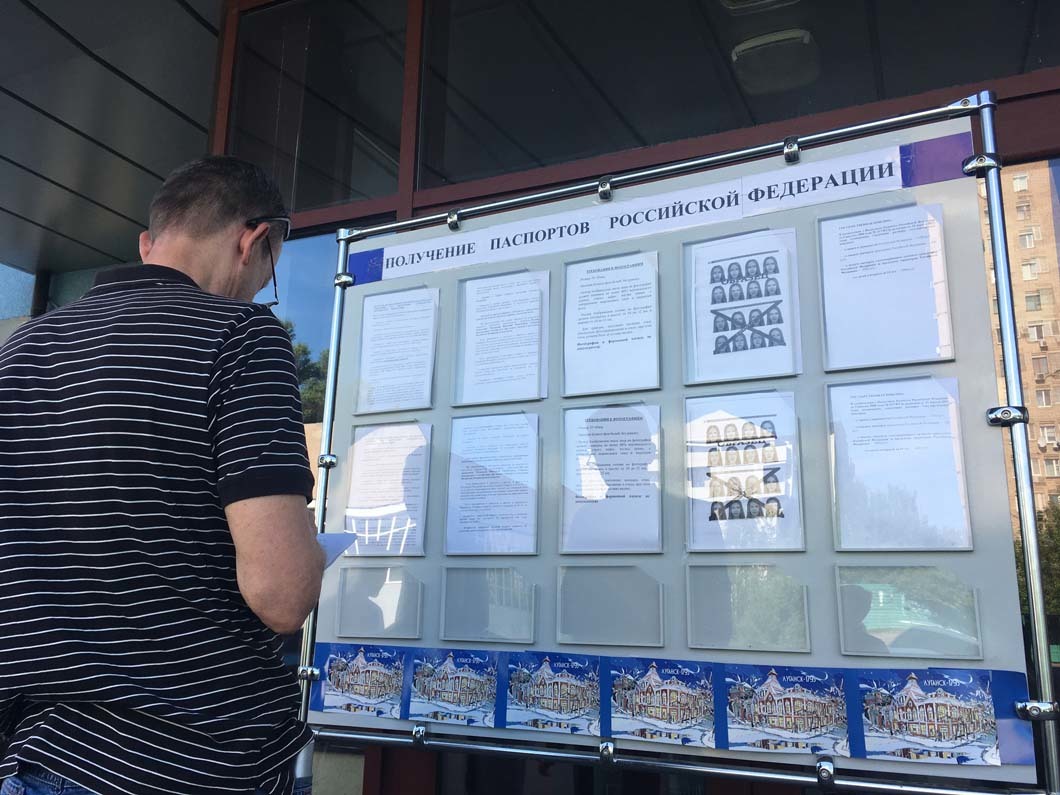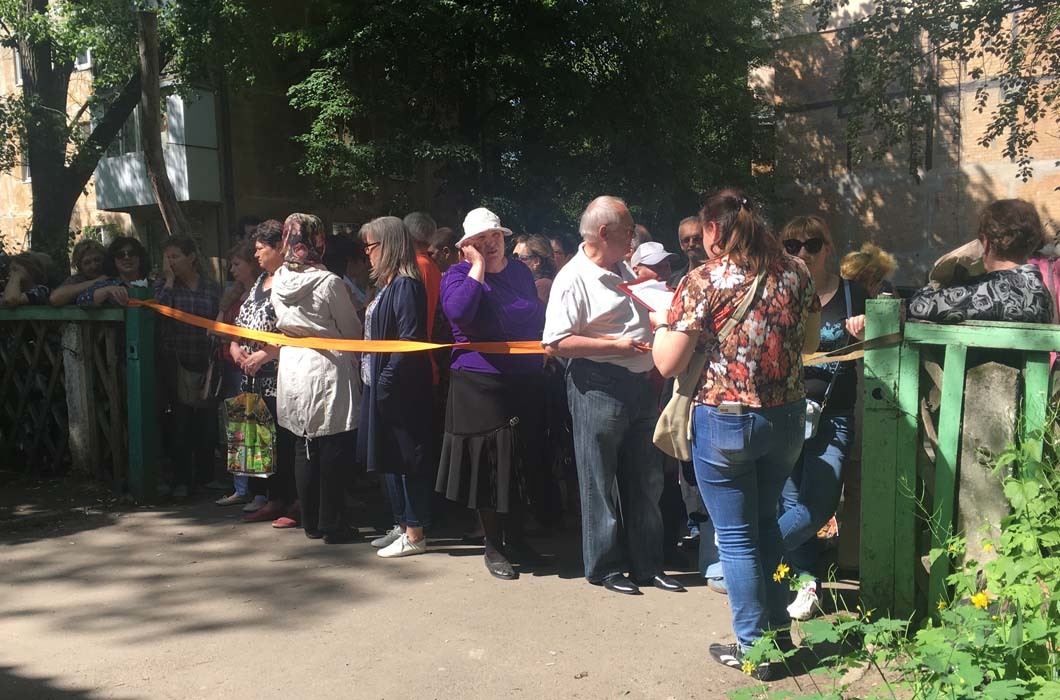Queuing for citizenship – how residents of eastern Ukraine are getting Russian passports
Novaya Gazeta
Russian President Vladimir Putin signed into law a bill on April 24 enabling residents of eastern Ukraine – in certain districts of the Donetsk and Luhansk regions – to receive Russian citizenship with a simplified procedure.
A couple of days later, Russian state television channels showed beautifully-equipped document reception points in the Rostov region for citizens of the unrecognized Donetsk and Luhansk “people’s republics.”
The cameras also showed competent and hardworking employees of these points, who on the very first day took in “a little less than 100” applications, while an alleged 300,000 are in the process of registration.

“We’ll wait for who gets the first Russian passport”
Donetsk, Shchors Street 104. There’s a queue in front of the entrance to the passport office of the Kirovsky district of the city. It’s seven o’clock in the morning. The office won’t open for another two hours, but people wanted to get a spot in line. People keep coming and coming.
• Why is Moscow offering passports to residents of eastern Ukraine?
There are two lines. One to receive a passport for the Donetsk People’s Republic, and another to receive a Russian passport. It turns out that there weren’t many people who were eager to receive a passport of their newly born country. But this condition was put forward by Putin as grounds for receiving Russian citizenship.
The DPR passport takes two to three months to receive – supposedly, it takes a while to print them.

The DPR has a curfew from 23.00 to 05.00. Therefore, those who decide to start queuing at four in the morning are at risk, and they can be “put away” for up to 28 days.
“Why do you need a Russian passport?” I ask a young woman.
“I would very much like to know what pensions will be like. What aid to families will look like”, she sighs. “We’ll wait to see who gets the first Russian passport, and where their address will be registered [to receive benefits]”.
Some say that to receive a pension, one needs to have a residence
This is a question that everyone is discussing here – do you need to have a registered address in Russia in order to receive a pension? One can’t get a passport without a residence permit, that’s for sure – people remember that from the Soviet Union. And how can you get a pension if you live in another country? One woman says she’ll register somewhere in the Rostov region.
I tell her that is a criminal offense in Russia, called bonus registration.
Hopes for pensions
Putin promised that the Russian budget would withstand the added weight of Donbass pensioners. But this is based on the size of the standard Russian pension. But there are no official statistics on how many pensioners live in the Donbas.
“We in Donetsk didn’t know how many of us were here before,” says journalist Oksana. “The last census in Ukraine was in 2001.”
Oksana’s father worked all his life in the mines. Then he retired. He is going to get a Russian passport and hopes to get a pension from Russia.
“What is the Donbass? It is coal and metallurgy”, Oksana says.
“Heavy, harmful and industrial production, and the salaries of miners have always been very good. Due to working conditions, miners retire very early. My father is 50 years old.”
By law, miners can retire after 20 years of service. For women working in these industries for more than seven years, the retirement age is also lowered.
“There are a lot of miners here,” Oksana notes.
“The amount of pension is calculated by salary and length of service. A pension of 15,000 hryvnia [about $565] is quite real for a miner in Ukraine. My father receives 8,500 hryvnia [about $320]. Now he, too, will be in Russia in order to claim a miner’s pension.”

Donetsk – second hand stores where boutiques formerly stood
I was in Donetsk in 2014. It was a beautiful, prosperous city, on the main streets there were even expensive boutiques. Now people joke and say they have a new trade network called – “For rent.” This phrase hangs in almost all the windows.
The boutiques have become second-hand stores.
“The people have worn themselves out in the past five years. And to buy new clothes…well, you’ve seen the prices yourself”, Oksana says.
I later read on social media, that some woman claimed she had seen her dresses in a second-hand shop. They were hers. She had gotten them from abroad, but her house had been smashed to pieces.
It’s of course impossible to verify, but it’s scary to read.




















